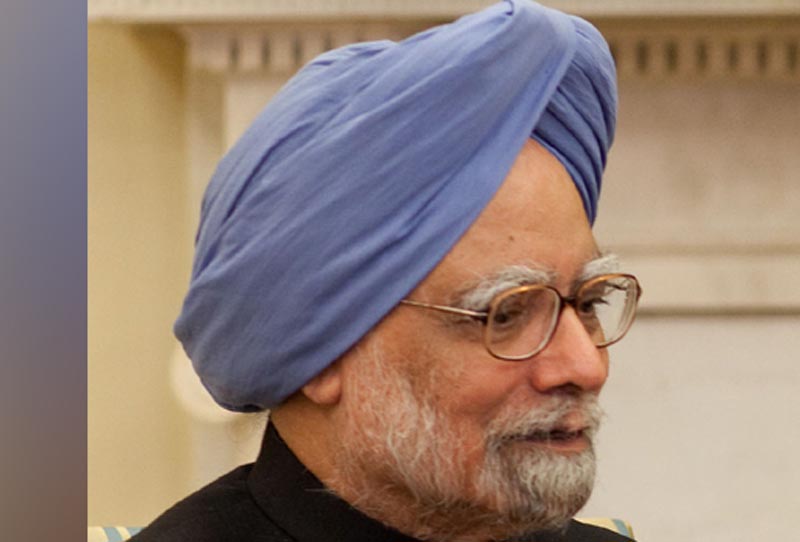New Delhi: In the wake of the Pulwama terror attack, former Prime Minister Manmohan Singh on Sunday said it is evident now that post-Cold War rules no longer maintain global nuclear order and that India is a “reluctant” nuclear weapons state.
Addressing a gathering at the launching of the book “Nuclear Order in the 21st Century” by Rakesh Sood, Singh said, “Today’s nuclear age is best described as an age of asymmetry, asymmetry in terms of doctrines, arsenals and technology. This is why the most important challenge today is to ensure that the nuclear taboo that has prevented its use since 1945 continues to be preserved.”
The former Prime Minister added, “The world is becoming increasingly concerned about growing nuclear risks. Many countries are modernising their nuclear arsenals with tactical and low yield weapons, increasing the likelihood of their use. Nuclear deterrence theories developed to address the US –USSR Cold War rivalry, are being redefined by strategic thinkers in a world grappling with the threats of rising nationalism, extremism and terrorism.”
He claimed, “New nuclear order will not be shaped by the Cold War prescriptions. India is a sui generis nuclear weapon state. It is a reluctant nuclear weapon state. India is the only country that had an extensive and advanced peaceful nuclear programme before we were compelled to shift in response to security threats and the only one that exercised nearly a quarter century of restraint after having demonstrated its technical capability. This is why we decided to base our nuclear doctrine on a credible, minimum deterrent and successive governments have also reiterated India’s commitment to a no-first-use policy.”
The economist prime minister lauding India’s policy and said its doctrinal approach has accordingly reflected a degree of continuity. “The special waiver given to India by the Nuclear Suppliers Group in 2008 is a clear acknowledgment of our impeccable non-proliferation credentials and our responsible posture. It is a matter of deep personal satisfaction that my government was able to bring the long negotiations with the US and other major powers to a satisfactory conclusion that has enabled India to conclude over a dozen agreements for civilian nuclear commerce and cooperation during the last decade.
Asserting that the political dynamics have changed over time, he stated, “Just as the political dynamics of the 21st century have changed dramatically compared to the Cold War era, so has the technological arena. Nuclear science and technology has matured over the last seventy years and is easier to access and acquire. This generates new proliferation risks and challenges.”
Furthermore, “Many leaders are concerned that these lead to greater unpredictability and compress the timelines for decision making. It can lead to unintended escalation, increasing the likelihood of a nuclear strike, something the world has not seen since 1945.”
The Cold War nuclear order was shaped by the rivalry of two nuclear superpowers, the US and the USSR, their nuclear parity and mutual vulnerability, Singh said.
[source_without_link]ANI[/source_without_link]

